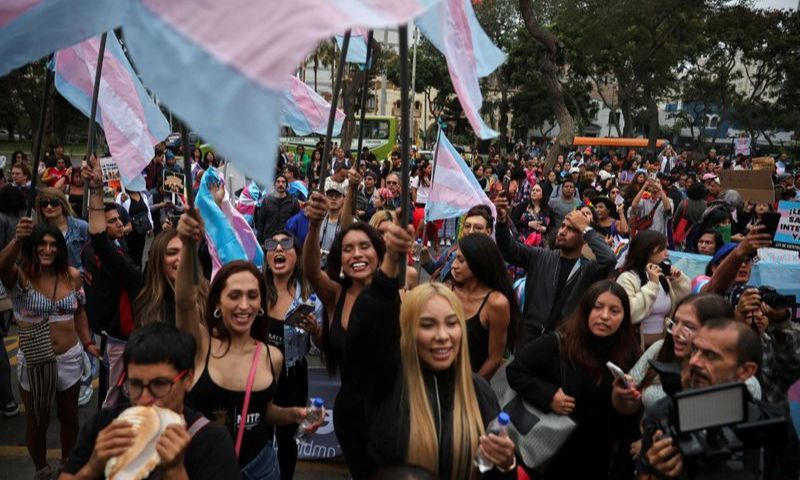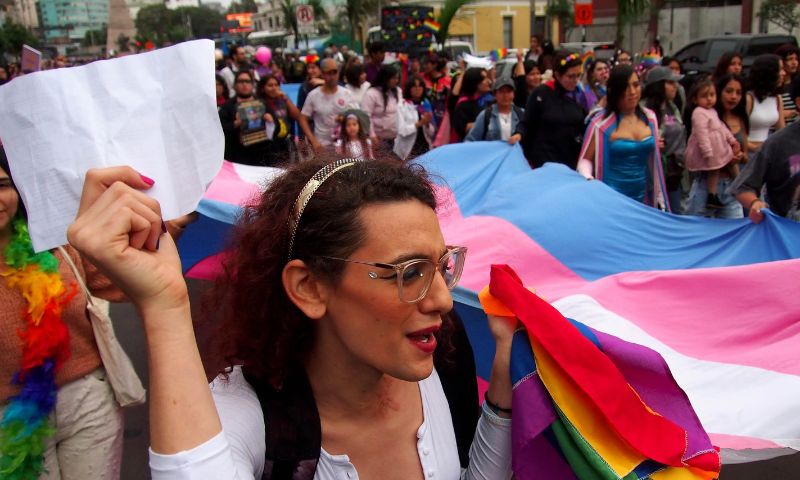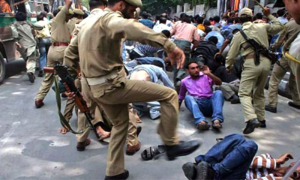LIMA, Peru: LGBTQ groups protested outside Peru’s health ministry on Friday after the government issued a decree listing transsexualism as a mental disorder.
“It is a decree that takes us back three decades,” said spokesman of the Collective Pride March, Jorge Apolaya. The group is a Lima-based rights group.
“We cannot live in a country where we are considered sick,” he added.
Transgender people are those who reject the gender they were assigned at birth. Some opt for a surgical or medical procedure.
On May 10, the government updated its list of insurable medical conditions — which offers benefits for mental health treatment from 2021 — to include services for transgender people.
In the decree, the Ministry of Health describes the condition as a “mental disorder” – an outdated term that the World Health Organization has long since officially abandoned.
More than 200 activists gathered outside the Ministry of Health on Friday – the International Day Against Homophobia, Biphobia and Transphobia – to demand the decree be revoked.
“It is a regulation that violates us … they are positioning us as sick people, as if we have a problem,” said 25-year-old Afrika Nakamura.
With slogans like “It’s not a disease, it’s diversity!” and “We are trans and we are not sick,” protesters blocked a busy avenue in front of the ministry for a few hours.
No clashes with police were reported.
The demanded the repeal of what they called the transphobic and violent decree that goes against their trans identity in Peru. Activist Gianna Camacho of the Coordinacion Nacional LGTBIQ+ said they are not mentally ill and they do not suffer from any mental disorder.
READ ALSO: Russia Accuses US of ‘Playing with Fire’ in Indirect War with Moscow
The government said it would not cancel the decree. Health Ministry official Carlos Alvadrado said it would “take away the right to care”.
The ministry has previously insisted it does not view gender diversity as an illness, expressing “our respect for gender identities and rejection of the stigmatization of sexual diversity” in a statement.
It said the decree is only intended to expand mental health coverage “for the full exercise of the right to health and well-being” of those who want or need it.
An article on the Human Rights Watch website describes the decree as “deeply regressive” in a country that does not allow same-sex marriage or transgender people to change their identity documents.























